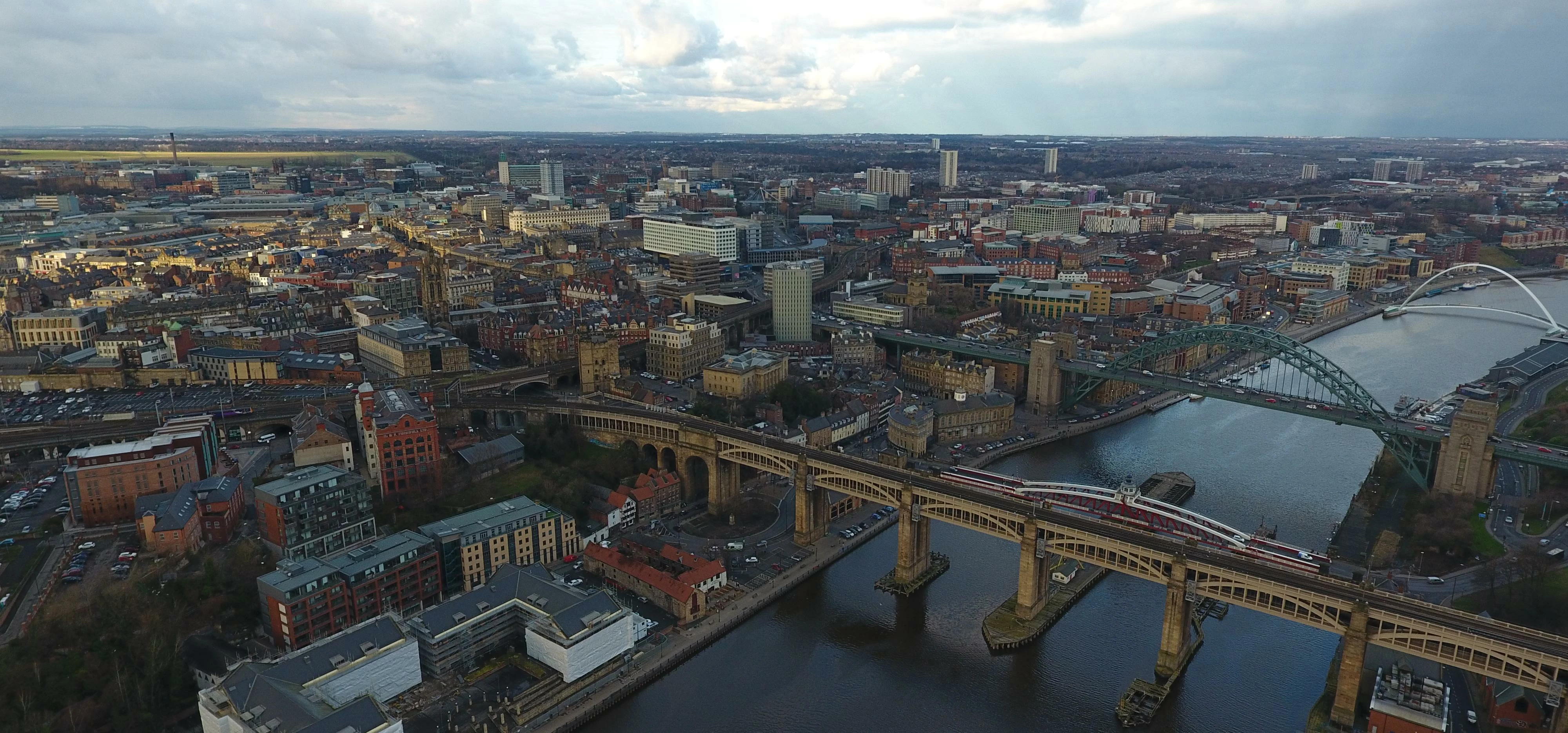
Partner Article
Where next for the North East’s tech sector after the Tech Nation 2017 report?
Editor Jamie Hardesty explores key headlines and findings from the Tech Nation 2017 report, in relation to the North East, before asking what’s next for the region’s digital future.
I’ve spent much of this morning delving into Tech Nation 2017, the latest edition of Tech City UK’s annual report, and I take great pride in seeing the extent in which the North East’s digital tech sector is helping to fuel the growth of the UK economy as a whole.
Generally speaking, the publication shows how the UK’s digital economy is now at the epicentre of Europe - attracting more new investment than any other continental country.
To see the progress made in our region, in areas such as Newcastle, Sunderland and Middlesbrough, is something which we should really be shouting about.
Expectedly, of course, the report shows how the sector’s highest earners are typically based in London but to see the boom in digital growth in Newcastle, for instance, demonstrates much to look forward to when we consider the future of our region’s tech sector.
I’ve pulled out some headlines from the report to share with you, which act as a good indicator and reference guide to the strength of the region’s tech scene.
Headlines
You can view the report yourself by going to the website and clicking the ‘Download Report’ section, free of charge. Here’s at look at area contributions at a glance:
Newcastle
Newcastle boasts over 20,000 digital tech economy jobs and the sector, in terms of digital gross value added, is worth £1bn to the UK’s economy.
With notable workspaces such as The Core and the ever-popular Campus North, the city stands as the region’s shining beacon for tech success.
Sunderland
With almost 6,000 tech jobs and a digital economic output of £148m, Sunderland is enjoying a rapid-rise as a tech contributor.
Sunderland Software City, established in 2009, has contributed to much of the breakthrough, housing a number of startup tech firms to help them gain a foothold in the sector.
Middlesbrough
Similar to Sunderland - Middlesbrough is on the up. With almost 7,000 tech jobs and a digital economic output of £211m, the area has a growing number of digital hotspots including Boho and Fusion Hive.
What next for North East tech?
Like any region, barriers to digital growth exist in the North East and have been addressed in the report.
As expected, lack of highly skilled workers were cited as the biggest barrier to growth by all three areas. Access to finance and poor transport infrastructure were also raised, again areas well documented as regional problems.
However, perhaps most interestingly, Sunderland respondents cited a ‘low level awareness of a local digital industry’ as a key barrier to growth.
With the North East Futures UTC set to open in September 2018 and the upcoming International Advanced Manufacturing Park certain to help bridge skills gaps in the region, it’d be interesting to see how the North East can collectively raise its profile as a leading tech hub.
A collective brand - despite various suggestions put forward - has not come to the fore, uniting the region as one.
We are making greater strides towards technical innovation, we’re building an infrastructure where digital can help improve more traditional industries and we’re developing a tech ecosystem which can nurture startups very well.
Personally, I’d like to see our region continue to alleviate itself and really propel itself onto the global stage. Would a collective brand help to achieve that?
Later this week, on friday morning, as a media partner of Tech Nation I’ll be attending the official launch of the report at The Core in Newcastle.
The region stands as one of the biggest successes cited in the report and I’m keen to hear thoughts on how we can continue to innovate, improve and move forward.
If you’re at the event don’t be afraid to come and say hi, I’d love to hear your thoughts!
Looking to promote your product/service to SME businesses in your region? Find out how Bdaily can help →
Enjoy the read? Get Bdaily delivered.
Sign up to receive our daily bulletin, sent to your inbox, for free.








 Raising the bar to boost North East growth
Raising the bar to boost North East growth
 Navigating the messy middle of business growth
Navigating the messy middle of business growth
 We must make it easier to hire young people
We must make it easier to hire young people
 Why community-based care is key to NHS' future
Why community-based care is key to NHS' future
 Culture, confidence and creativity in the North East
Culture, confidence and creativity in the North East
 Putting in the groundwork to boost skills
Putting in the groundwork to boost skills
 £100,000 milestone drives forward STEM work
£100,000 milestone drives forward STEM work
 Restoring confidence for the economic road ahead
Restoring confidence for the economic road ahead
 Ready to scale? Buy-and-build offers opportunity
Ready to scale? Buy-and-build offers opportunity
 When will our regional economy grow?
When will our regional economy grow?
 Creating a thriving North East construction sector
Creating a thriving North East construction sector
 Why investors are still backing the North East
Why investors are still backing the North East